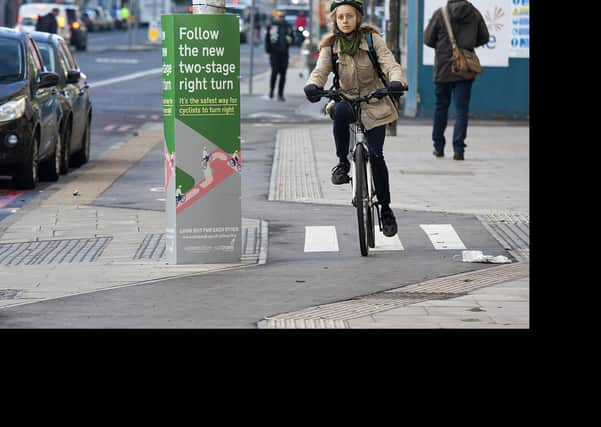Scotland needs a solid ‘greenprint’ for economic recovery - Elizabeth Leighton


The ‘Economic Implementation Plan’ accepts all 25 recommendations from the Advisory Group on
Economic Recovery. The Climate Emergency Response Group (CERG) couldn’t agree more – the economic case for green recovery policies has never been stronger with ‘shovel ready’ projects that will protect and create jobs all over Scotland, and opportunities to grow new skills and enterprises for those hardest hit by the current crisis.
Advertisement
Hide AdAdvertisement
Hide AdFor us, it is the only route to reach the Scottish Government’s ambition for a well-being economy – resilient, healthy and low carbon. Decisions taken now and over the next few months will shape our economy for the next decade – either putting us firmly on track to meet our climate targets or locking us into a fossil fuel economy at great cost and risk to society.
In July, CERG published the report, Eight policy packages for Scotland’s Green Recovery. It contains a set of practical, realistic solutions that the Scottish Government can implement now in order to move Scotland towards a net-zero economy, while recovering from the Covid-19 crisis. Some of these ideas appear in the implementation plan, though with limited detail on the ‘how to’ deliver on the ground.
The plan suggests that detail will come in the Programme for Government – so what should it contain to give us confidence in the government’s desire to ‘rebuild better’ – and to do so with urgency? Here are some of the steps that can be taken immediately. Some of these measures are also recommended by the Just Transition Commission in its recent report on the green recovery.
We need to make cities and towns more liveable and resilient – with space for physical distancing in pedestrian areas and cycle lanes; faster, reliable and zero emission buses with dedicated bus lanes; and a Community Health and Wealth Fund to help local authorities design big low carbon projects – district heating, active travel, EV charging – attracting private investment and creating a steady pipeline of construction jobs.
We can retrofit our leaky and energy-wasting buildings all over Scotland by immediately doubling existing fuel poverty and energy efficiency programmes which already have large numbers of clients waiting in the queue. Financial support and advice should also be ramped up to encourage homeowners and businesses to switch to clean, modern, renewable heat, at the same time maximising opportunities for manufacture and installation.
Fresh commitments to fund climate emergency work on our land – in farming, forestry and peatland restoration – can provide critical employment in rural areas. This means longer term support for the Forestry Grant scheme and the restoration and care of our natural assets.
Enterprise support for innovative businesses that have emerged from the Covid-19 crisis – accelerating the shift to low carbon, circular economy operations, shortening supply chains and boosting local jobs –for example by supporting local food growing, processing and distribution.
The public purse can’t fund all of this – so the Scottish Government will need to create the right environment to unlock private investment. This can be done through incentives, regulation, guidance, setting targets and pump priming.
Advertisement
Hide AdAdvertisement
Hide AdIt’s also important to prepare Scotland’s workforce for the growth in green jobs – in engineering, construction, planning, strategy and analysis.
For example, a Renewables Transition Training Fund would support oil and gas workers to join the renewable energy industry.
We know that the Covid-19 crisis has fallen disproportionately on young people, women, those already in low wage, precarious employment, and BAME communities. So, the need for a just transition to a net-zero Scotland could not be clearer – and the economic recovery plan must ensure the benefits and costs of the response are shared fairly across the country.
In 2019, the Scottish Government’s Programme for Government set out a broad package of policies and commitments to respond to the climate emergency. In 2020, we cannot afford any delay in taking forward those commitments and going further – for the climate, and for the many economic opportunities the low carbon economy offers. We need a plan that sets out how we can recover from the public health and economic impacts of Covid-19 while accelerating our response to the climate emergency – a solid ‘greenprint’ for Scotland’s economic recovery.
Elizabeth Leighton, Secretariat, Climate Emergency Response Group
Comments
Want to join the conversation? Please or to comment on this article.